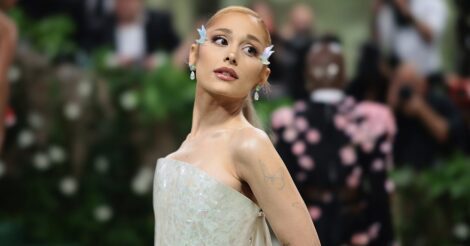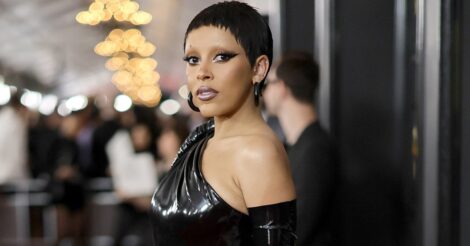
Samantha Ware is opening up about her memories of Lea Michele on the set of Glee.
Earlier this month, Samantha, who played Jane Hayward in Glee’s sixth and final season, called out Lea for her allegedly questionable behavior towards her on set. Several other cast members have also chimed in with not-so-pleasant experiences of their own, although there were some who defended her and others who refused to get caught up in the drama that has since ensued.
Lea starred as one of Glee’s main characters, Rachel Berry, throughout the show’s six-season run. She’s since issued statement following the backlash she received after her castmates’ allegations.
In a recent interview with Variety, Samantha shared details of her time on the set and why she decided to call out the actress.
“I knew from day one when I attempted to introduce myself. There was nothing gradual about it. As soon as she decided that she didn’t like me, it was very evident,” Samantha told the outlet. “It was after I did my first performance, that’s when it started – the silent treatment, the stare-downs, the looks, the comments under her breath, the weird passive aggressiveness. It all built up.”
“Lea’s actions were nothing new, so I guess since it was such a common thing, my case didn’t seem like that big of a deal,” she continued. “I remember the first day I actually spoke up and unfortunately no one did anything. They just shrugged it off, like ‘That’s her.’ No one was stopping these things, which is an issue because the environment was helping perpetuate this abuse.”
Samantha recalled a moment where she may have unintentionally offended Lea, but felt that the latter’s reaction led to a point where they “were past the respect and she was just abusing her power.”
“When you’re shooting a scene, sometimes the camera is on you and sometimes it’s not, but you still have to be in the scene,” she said. “The camera wasn’t on us, so it’s not like we had to give a full throttle performance, but apparently, I was goofing around when the camera wasn’t on me, and she took that as me being disrespectful to her.”
“She waited until the scene was over and she stopped in the middle of the stage and did a ‘come here’ gesture, like how a mother does to their child,” Samantha said. She added that Lea said: “You need to come here right now.”
“I said ‘no,’ and that’s when she decided to threaten my job, and said she would call Ryan Murphy in to come and fire me,” she went on, recounting, “It’s scary. For the full week, I was thinking I’m probably going to get an email and I might not be able to do the last three episodes, or I might not be able to sing another song.”
“When I tried to speak up for myself, she told me to shut my mouth. She said I don’t deserve to have that job,” Samantha continued. “She talked about how she has reign. And here’s the thing: I completely understood that, and I was ready to be like, ‘This is your show. I’m not here to be disrespectful.’ But at that point, we were already past the respect and she was just abusing her power.”
She also elaborated on her tweet. “She had an issue because I had laughed [when watching a scene] and that’s when the ‘I’m going to s–t in your wig’ comment happened,” Samantha recalls of a cast screening they attended on set. “Some chuckled and some gasped. It was mortifying. The whole point was for her to embarrass me. People heard her, but no one was going to stand up to her.”
“Everyone minded their business or said, ‘I’m sorry, I wish I had the power to stop this, but this is just the way it is, and this is just how it’s been’ – which means I wasn’t the first person to have been in that situation,” she continues.
Samantha says she doesn’t support cancel culture and thinks that everyone deserves a second chance. She hopes her tweet becomes a learning opportunity for her former co-star.
“Does Lea even know what a microaggression is? I don’t know. All that her apology did was affirm that she hasn’t learned anything. Am I calling Lea a racist? No. Does Lea have racist tendencies? I think Lea suffers from a symptom of living in this world in an industry that is tailored to white people.”
As for the future, Samantha said, “I would love to be someone behind the table and at the table making room for others at the table. Even my skin and my presence is an act of liberation and defiance and joy, so for me to be in a room that I was never intended to be in is enough. I believe I do good work, and I believe that I try to give as much love and respect to the people around me.”









